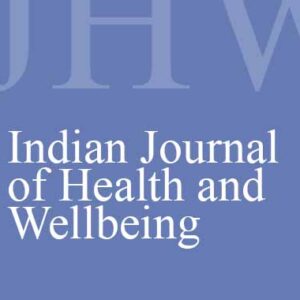Policy Framework for Valuable Ageing in Digital World: From Ensuring Basic Needs to Enabling Self-actualization
Original price was: ₹ 201.00.₹ 200.00Current price is: ₹ 200.00.
Page: 56-60
Priyanshi Choudhary (Vivekananda College, University of Delhi, Delhi)
Description
Page: 56-60
Priyanshi Choudhary (Vivekananda College, University of Delhi, Delhi)
The theme for the World Telecommunication and Information Society Day in 2022 that ITU celebrates every year was “Digital technologies for Older Persons and Healthy Aging” . This indicated the two global megatrends. On the one hand, the world Population is ageing at a much faster pace than in the past. Estimates show that by 2030, 1 in 6 people of the world will be aged 60 or above. On the other hand, these demographic changes are accompanied by technological changes of equivalent magnitude. However, there is a cross generational digital divide. As per the Fundamental Rights Agency 2020, 20 % of people aged 75 years and older use the internet at least occasionally, in comparison with 98 % of 16-29-year-olds. This shows the immense need for a policy framework to bridge the gap between the growing number of adult citizens and their low rates of technology adoption, for fulfilling their basic needs and gradually transforming these vulnerable sections to an invaluable asset for the society, simultaneously giving a boost to the silver economy. This paper aims to provide policy perspectives for fulfilling the individual requirements through ITC to ensure healthy ageing. To address this concern the paper is divided into three sections, describing policies for digital inclusion, service delivery roadmap and human rights concern in policy implementation. The first section outlines the roadmap for digital inclusion of the elderly population given their unique physiological and psychological needs. This includes affordability, availability and accessibility of technology to ensure their inclusion in digital initiatives. The second section mentions various policy suggestions for holistic development through prioritising policy objectives in accordance with the Maslow’s hierarchy of human needs ensuring their ultimate self-actualization. This will empower them to utilise the years ahead to contribute to society with their treasure trove of incommensurable experiences. The final section addresses concerns related to human rights violations of old age individuals during policy implementation. This will ensure their safe participation and healthy ageing in the digital era in accordance with SDG by 2030.


